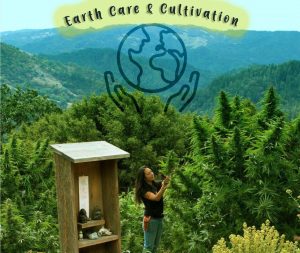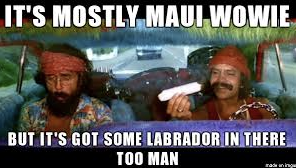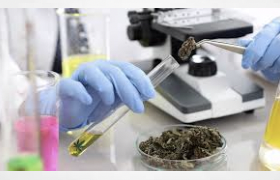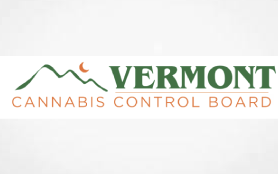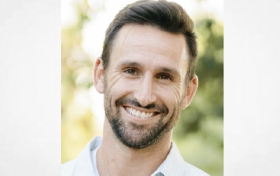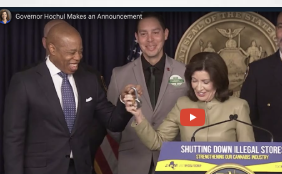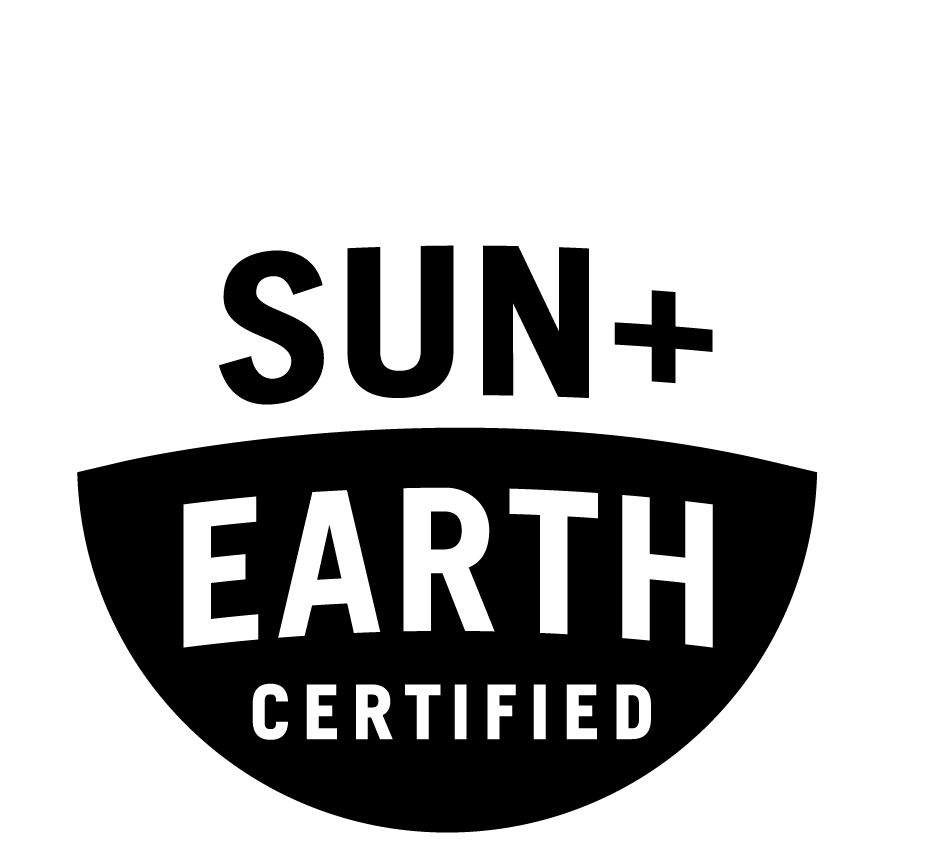Sun+Earth Certified, a leading non-profit certification for regenerative organic cannabis and hemp, has expanded into the State of Michigan with its first urban farm located in the Palmer Park area of Detroit, ROI Urban Farms. In just over a year since its founding, the Sun+Earth Certified roster has more than doubled in size, with 38 cannabis farms in six states—California, Colorado, Michigan, Oregon, Washington, and Wisconsin—demonstrating the consumer demand for regenerative organic cannabis grown under the sun by small-scale family farmers.
If you wish to re-publish this story please do so with following accreditation
AUTHOR: Heather Allman
PUBLISHER: CANNABIS LAW REPORT
Interview with Andrew Black, Certified ED at Sun+Earth
CANNABIS LAW REPORT: Why focus specifically on the importance of –and practice of– renewability and sustainability and regenerative methods, regarding cannabis?
Andrew Black: Regenerative organic farming under the sun is the most practical, environmentally sensitive, and healthy method of cultivating cannabis. These methods and the standards used by Sun+Earth help reduce our carbon footprint and are important to the future of the planet.
CLR: Tell me about the 2020 cannabis year to date, and take on the current national cannabis landscape + current California cannabis landscape, and please explain your perspective to the readers.
Andrew Black: In 2020, Sun+Earth tripled the number of farms it has certified to 42 farms in six states—California, Colorado, Michigan, Oregon, Washington, and Wisconsin.
The Sun+Earth Crowdfunding and Education Campaign has been wildly successful, reaching our $25,000 goal in the first week. This not only underscores the support and demand for regenerative organic cannabis, but the funding will also allow us to certify even more farms across the country in 2021.
CLR: With COVID-19, what has been the business impact so far for Sun+Earth? Are you as a company doing anything new or differently?
Andrew Black: Sun+Earth Certified is a nonprofit and we are unique among certifications because of that and because our standards represent a high bar for the cannabis industry. Our aim is to shift the cannabis industry in a cleaner, healthier and more ethical direction.
CLR: Explain to me how you “use Mother Nature as your partner,” so to speak.
Andrew Black: Sun+Earth works with farmers who grow cannabis in the soil and use farming practices that include growing cannabis with other harvestable vegetables and herbs, and cover cropping which uses photosynthesis to help sequester atmospheric carbon into soil carbon.
Insects and other creatures are used to avoid the chemical inputs that are used in industrialized cannabis production. Some Sun+Earth Certified farms use animals to turn grass into fertilizer for farming. We also want to leave the land in better condition than we found it.
CLR: Tell me about your sustainability and renewability initiatives. Can you please give me a couple examples of how you’re addressing climate change/ sustainability, and renewability at Sun+Earth?
Andrew Black: Some of this is addressed above, but Sun+Earth is offering a model of cannabis cultivation that uses very low amounts of electricity, one of the biggest environmental downsides to industrialized indoor cultivation. Sequestering carbon from the atmosphere is yet another way to reduce our carbon footprint in an energy intensive industry.
CLR: How do authenticity and consumer trust factor into your current course(s) of action?
Andrew Black: Consumer trust and confidence is important to us at Sun+Earth Certified. Consumers know that products with the Sun+Earth seal have been grown in the soil, under the sun, and without chemicals by fairly paid farmers.
CLR: What steps do you currently take to achieve and maintain your own premium reputation —and the reputation of Sun+Earth?
Andrew Black: Sun+Earth Certified is less than two years old and is building its reputation in the cannabis space. Even if organic standards for cannabis are implemented by the federal government (USDA), we pride ourselves on having standards that go beyond organic.
Sun+Earth standards also include wage protections for farmers and farmworkers, as well as community engagement requirements.
HIGHLIGHTS
Leading Certification Program for Regenerative Organic Cannabis Expands into Michigan with Urban Detroit Farm
Now in Six States, Sun+Earth Certified Makes Great Strides Toward its Goal of Shifting the Cannabis Industry in a Cleaner, Healthier, and More Ethical Direction
DETROIT, MI – Sun+Earth Certified, a leading non-profit certification for regenerative organic cannabis and hemp, has expanded into the State of Michigan with its first urban farm located in the Palmer Park area of Detroit, ROI Urban Farms. In just over a year since its founding, the Sun+Earth Certified roster has more than doubled in size, with 38 cannabis farms in six states—California, Colorado, Michigan, Oregon, Washington, and Wisconsin—demonstrating the consumer demand for regenerative organic cannabis grown under the sun by small-scale family farmers.
“A first-of-its-kind certification, Sun+Earth was founded on Earth Day 2019 by cannabis industry leaders, experts, and advocates with a common commitment to regenerative organic agriculture, farmer and farm-worker protections, and community engagement. Sun+Earth has since made great strides toward its goal of shifting the cannabis cultivation industry in a cleaner, healthier and more ethical direction. For more on Sun+Earth Certified, go to: www.sunandearth.org.
“The COVID-19 pandemic has not slowed the progress of Sun+Earth Certified as we continue to approve new farms and expand into new states,” said Andrew Black, Executive Director of Sun+Earth Certified. “We’re also breaking new ground with the certification of our first urban farm, which uses innovative farming practices that we can all learn from.”
The vast majority of cannabis products currently sold in the United States present no on-package labeling that explains how it is grown or specifically what pesticides or chemical fertilizers were used in its production. Sun+Earth provides consumers confidence in the knowledge that their cannabis products are grown organically. According to the market research group TrendSource and its 2019 Cannabis Industry Report, over 53 percent of consumers are willing to pay more for organic cannabis products.
No chemical fertilizers or toxic pesticides are used to grow cannabis certified by Sun+Earth, whose standards go beyond USDA Organic by focusing on regenerative cultivation, farmer and farm-worker protections, and community engagement.
Industrial indoor cannabis production consumes high volumes of energy and uses chemical inputs, whereas Sun+Earth Certified cannabis is cultivated on outdoor farms that strengthen habitats and build living soil. Guidelines for Sun+Earth Certified cultivation encourage the planting of cannabis alongside other beneficial rotation crops such as potatoes, lettuce and marigolds, and strategic use of cover crops, composting, and reduced soil tillage.
Industrial indoor cannabis production consumes high volumes of electricity and puts the indoor cannabis industry at odds with efforts to mitigate the current climate crisis. According to a 2012 academic report, all cannabis grown in the US uses the same amount of energy it takes to power 1.7 million US homes, and generates greenhouse gas emissions equivalent to 3 million cars. More recently, the 2018 Cannabis Energy Report from New Frontier Data found that growing indoors uses 18 times more electricity and has a carbon footprint nearly 25 times larger than outdoor farms.
Sun+Earth Certified ensures cannabis products are grown under the sun, in the soil of Mother Earth without chemicals, by fairly paid farmers and farm workers. Learn more at: www.sunandearth.org.
Further Reading on Sun + Earth Certification


